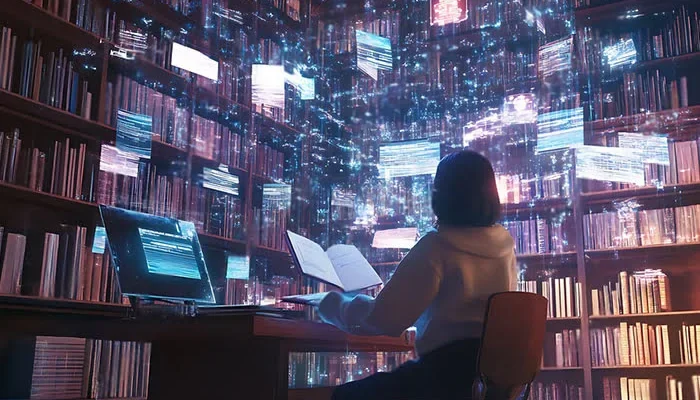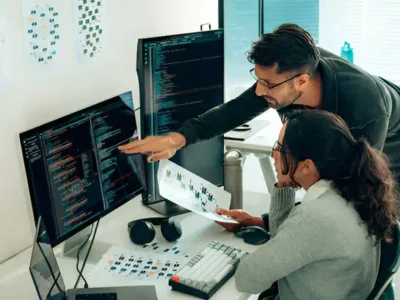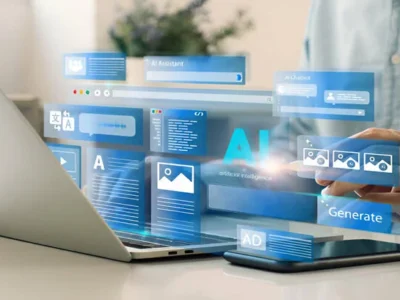The rise of AI-powered teaching systems is opening up new ways to teach and learn. People are learning in new ways thanks to these tools, which make learning more personalized and flexible for kids. As we move through this change in education, it’s important for both parents and teachers to understand how AI can change how people learn.
The Basics of AI Tutors and Personalized Learning
They use AI to make sure that each student’s lessons are geared toward their wants and pace. This method helps fix a big issue with the way most schools work, which is that teachers always use the same approach. The speed has to stay the same a lot of the time, which makes some students fall behind and others lose interest. The goal of AI teachers is to do this.
Patterns in how students talk to each other are used by AI to change lessons to fit those patterns. They change the lessons’ level of difficulty, the speed, and even the resources that are used. If a student is having trouble with algebra, for instance, an AI tutor might give them more knowledge or different examples to help them understand better. Being able to change helps kids learn better and go more quickly.
Key Features of AI Tutors
To make learning more personalized, AI tutors use a number of traits, such as:
Adaptive Learning Paths: Based on how well a student is doing, AI tutors change the material and level of difficulty. This way, each student gets the right amount of challenge without being too stressed out.
Instant Feedback: Students get answers right away to their homework and tests, which lets them fix their mistakes and make sure they understand better.
Interactive Learning: To make learning more fun, AI teachers often use simulations, quizzes, and conversational tools.
Access 24 hours a day, seven days a week: AI tutors can be reached at any time, giving students more freedom than standard classrooms.
AI teachers are useful in modern education because of these things, but their real value comes from being able to make learning truly personalized.
Benefits of AI Tutors for Kids
AI teachers have advantages over traditional teachers in more ways than one. Better learning and extra help are things they do to help kids do well.
Personalized Learning
The best thing about AI teachers is that they can tailor lessons to each student. AI systems look at each student’s strengths, weaknesses, and learning habits to make sure they have a personalized learning experience. Students are more interested and learn faster with this method because they only work on things they need to work on and not things they already know a lot about.
For instance, educational AI tools utilize algorithms to analyze performance and adjust lesson plans accordingly. These smart tools help students learn at the right speed, which helps them understand the material better.
Accessibility and Flexibility
Your AI guide can help you from anywhere and at any time. It’s helpful for students who live far away or have a lot going on and can’t get to regular training because of this. They can help close this gap by being there to help students whenever they need it.
Continuous Assessment and Real-Time Feedback
The AI always checks on the kids to see how they’re doing and tells them right away. This is very important for finding holes in the material and filling them in before they get worse. When students get feedback right away, they can see their growth and fix their mistakes right away. This helps them learn even more.
Reducing Teacher Workloads
AI tutors can do easy things like grade work and leave notes. Teachers will have more time to work on harder lessons and one-on-one help because they will have less work to do. If these tasks are done electronically, teachers have more time to help students and teach them how to think critically.
Challenges of AI Tutors and Their Limitations
There are good things about AI coaches and bad things that parents and teachers should think about. People relying too much on technology is a substantial worry. Students might not learn how to fix problems on their own if they depend too much on AI teachers. AI and traditional ways of teaching need to work together in a balanced way to teach people to think critically.
Another problem is making sure that material made by AI is good. AI systems need a lot of data to work, and if there are mistakes in the data, the systems may give skewed or wrong information. People need to review information made by AI to make sure it is correct and useful.
Some people don’t use AI teachers because they don’t have access to technology. Some students don’t have the same amount of access to the internet and technology, which can make the lessons less fair. These problems need to be fixed so that AI-powered learning tools can be used by more people.
Ethical Considerations in AI-Powered Learning
Ethical concerns should come first when people use AI teachers in schools. Because AI tutors look at information about their students to make learning more personalized, data protection is a big problem. Privacy rules need to be followed by these systems so that kids, parents, and teachers can trust them.
Anti-racism and fairness are also moral problems. Artificial intelligence (AI) systems could accidentally favor some groups of students over others if the data they are trained on isn’t different. Regularly checking and updating AI systems is necessary to get rid of flaws and make the learning environment fair.
Additionally, being honest is very significant. AI teachers should tell parents and kids how they work, what they collect, and what they do with that data. Sharing information about AI tools with others can help build trust and encourage smart use.
How AI Tutors Enhance Understanding
AI teachers give each student personalized help, fun activities, and comments at the right time to help students understand better. Online schools like Khan Academy use computer programs to help each student by suggesting lessons and activities based on how well they are doing. Teachers use this way to help students get better at things they’re not good at and learn new things.
Fun learning tools are also available for AI teachers. Education apps like educational AI use games, quizzes, and models to keep students interested and help them better understand tough topics.
Furthermore, some AI teachers use natural language processing (NLP), which lets them talk to kids in a normal way. This feature directly answers your questions, giving you the feeling of having a teacher assist you one-on-one.
Addressing Privacy Concerns with Parental Control Apps
As AI tutors become more common, ensuring safe usage is essential. These tools can expose children to online risks if not carefully managed. Parental control apps like Safes Family play a crucial role in mitigating these risks. These apps enable parents to monitor their children’s online activities and restrict access to inappropriate content or risky applications.
Parents can keep their kids safe online with parental control apps that can see where they are at all times, see what apps they use, and block certain websites. When parents use strict parental rules along with AI tutoring, they can give their kids a safe and helpful place to learn.
Future Trends in AI-Powered Tutoring
There are lots of exciting things that could happen in the future with AI teaching. Language translation and culture adaptation tools that work in real time make it easy for students from different backgrounds to work together. Over time, AI teachers will get smarter and better at helping each student individually.
Another trend is the rise of augmented reality (AR) and virtual reality (VR) as more interesting ways to learn. AI-powered systems and AR/VR technologies could be used together to make schools into places where people can connect with each other. Imagine being able to study history by looking at 3D models of old societies or work in virtual labs to get a better understanding of scientific ideas.
The Future of AI Tutors and Personalized Education
People think that AI teachers will be more useful in schools in the future. AI systems will get smarter over time and be able to help and mold people even more as technology gets better. Some things that could happen in the future are:
AI-Enhanced Collaboration
It might soon be easier for students from different backgrounds to work on projects and learn together with the help of AI tools. Students can learn by seeing things from different angles during this type of sharing. As AI helps students with group projects, teachers can make the classroom more fun and open to everyone.
Real World Applications
AI is getting better, and soon teachers might have to use AI to help them do their jobs. Kids could learn how to use math concepts in different scenarios or how to write better essays by looking at examples from real life. AI teachers could not only help people learn, but also show them how to make good use of what they’ve learned.
Conclusion
Smart AI teachers could change the way people learn by tailoring lessons to each student, giving them feedback all the time, and making it easier for them to get help. Unfortunately, issues like relying too much on technology, privacy concerns, and the digital divide need to be fixed before AI teaching can help all students.
Parental and teacher guides need to learn how to use AI learning tools while still keeping an eye on things as they get better. That doesn’t mean AI tutors will replace teachers. They will instead assist teachers in their work and let students have more control over how they learn. An intelligent use of AI can create schools where each student can get effective, individualized instruction.
FintechZoom Pro: The Future of Financial Technology at Your Fingertips










Comments